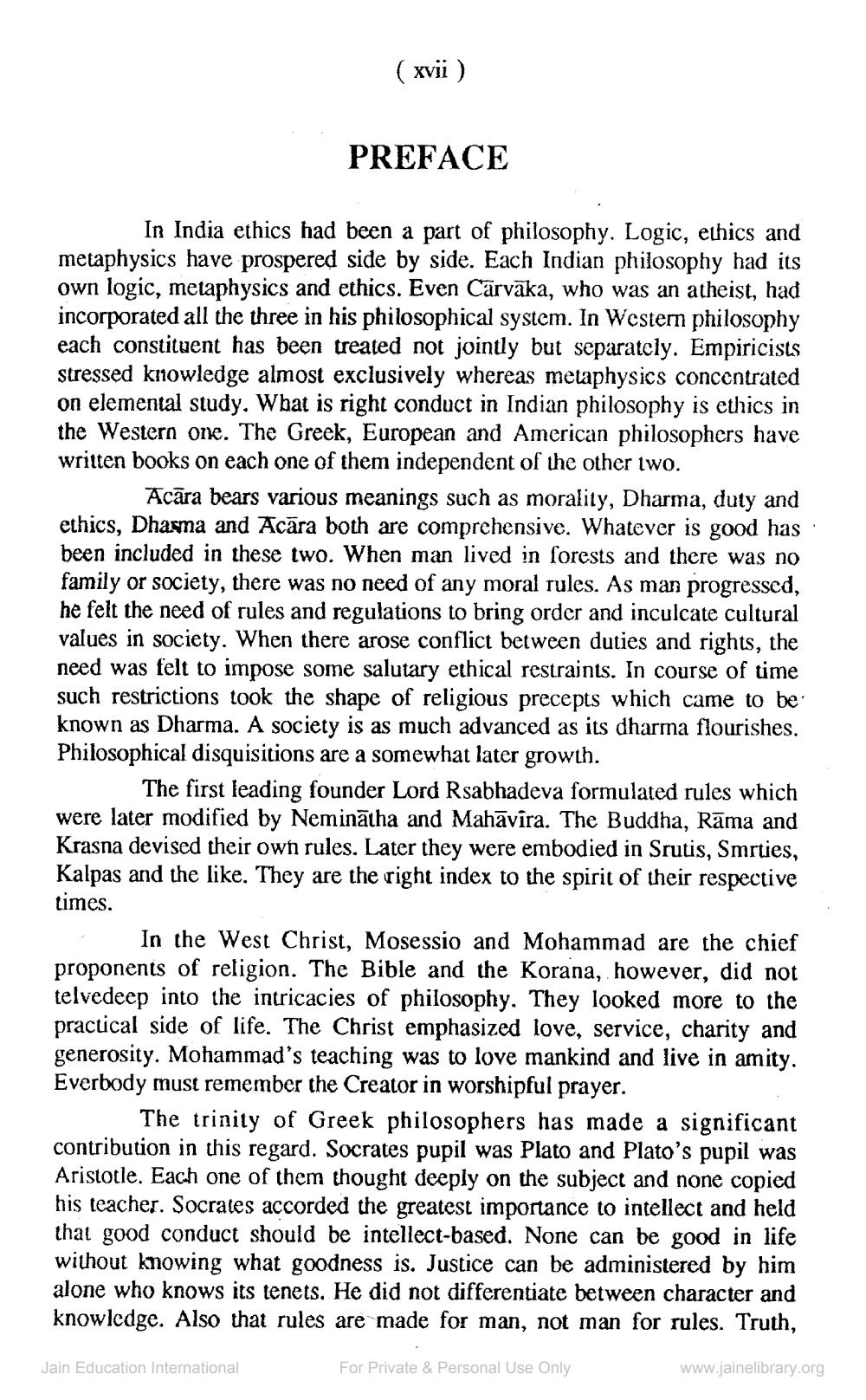________________
( xvii )
PREFACE
In India ethics had been a part of philosophy. Logic, ethics and metaphysics have prospered side by side. Each Indian philosophy had its own logic, metaphysics and ethics. Even Carvāka, who was an atheist, had incorporated all the three in his philosophical system. In Western philosophy each constituent has been treated not jointly but separately. Empiricists stressed knowledge almost exclusively whereas metaphysics concentrated on elemental study. What is right conduct in Indian philosophy is ethics in the Western one. The Greek, European and American philosophers have written books on each one of them independent of the other two.
Acāra bears various meanings such as morality, Dharma, duty and ethics, Dharma and Acāra both are comprehensive. Whatever is good has been included in these two. When man lived in forests and there was no family or society, there was no need of any moral rules. As man progressed, he felt the need of rules and regulations to bring order and inculcate cultural values in society. When there arose conflict between duties and rights, the need was felt to impose some salutary ethical restraints. In course of time such restrictions took the shape of religious precepts which came to be known as Dharma. A society is as much advanced as its dharma flourishes. Philosophical disquisitions are a somewhat later growth.
The first leading founder Lord Rsabhadeva formulated rules which were later modified by Neminātha and Mahāvīra. The Buddha, Rāma and Krasna devised their own rules. Later they were embodied in Srutis, Smrties, Kalpas and the like. They are the right index to the spirit of their respective times.
In the West Christ, Mosessio and Mohammad are the chief proponents of religion. The Bible and the Korana, however, did not telvedeep into the intricacies of philosophy. They looked more to the practical side of life. The Christ emphasized love, service, charity and generosity. Mohammad's teaching was to love mankind and live in amity. Everbody must remember the Creator in worshipful prayer.
The trinity of Greek philosophers has made a significant contribution in this regard. Socrates pupil was Plato and Plato's pupil was Aristotle. Each one of them thought deeply on the subject and none copied his teacher. Socrates accorded the greatest importance to intellect and held that good conduct should be intellect-based. None can be good in life without knowing what goodness is. Justice can be administered by him alone who knows its tenets. He did not differentiate between character and knowledge. Also that rules are made for man, not man for rules. Truth,
Jain Education International
For Private & Personal Use Only
www.jainelibrary.org




